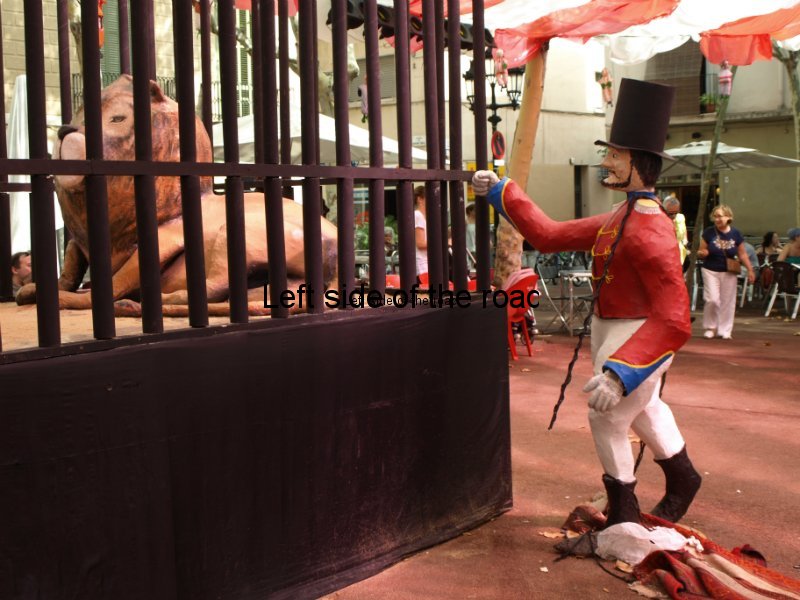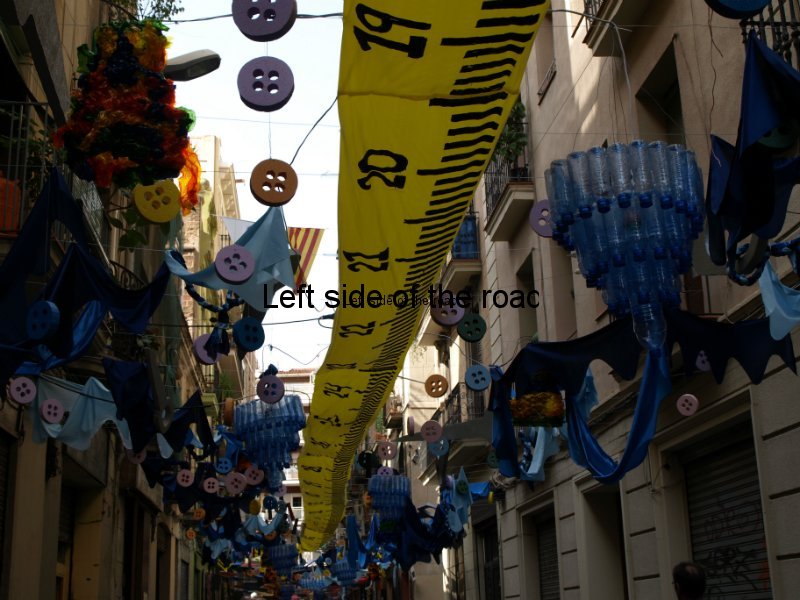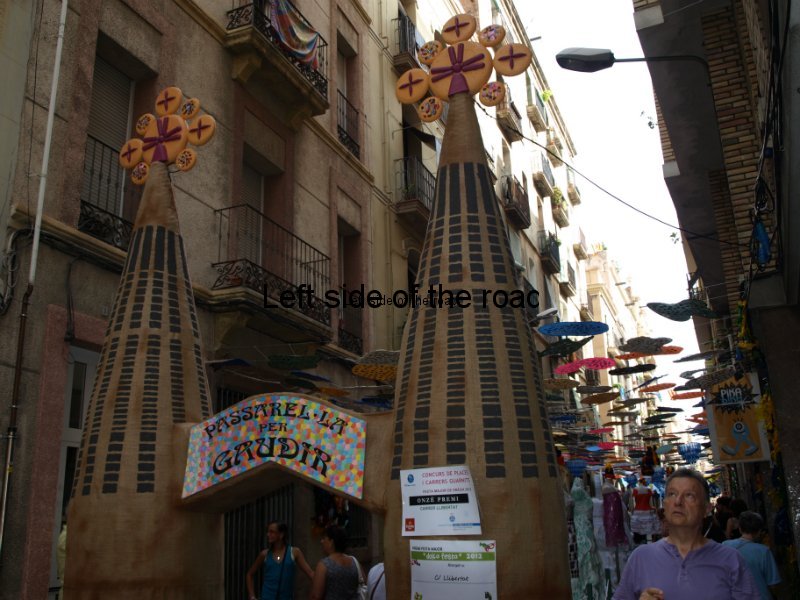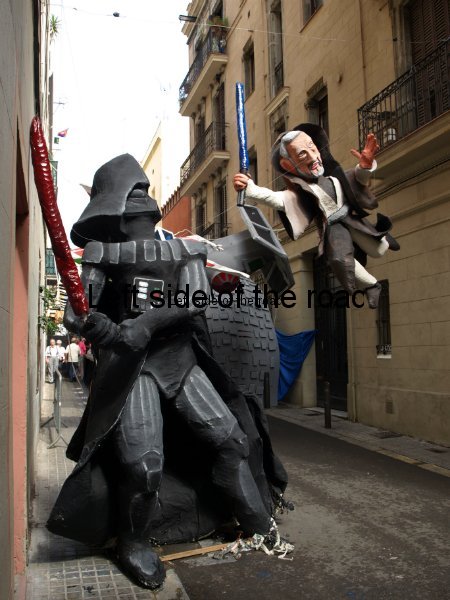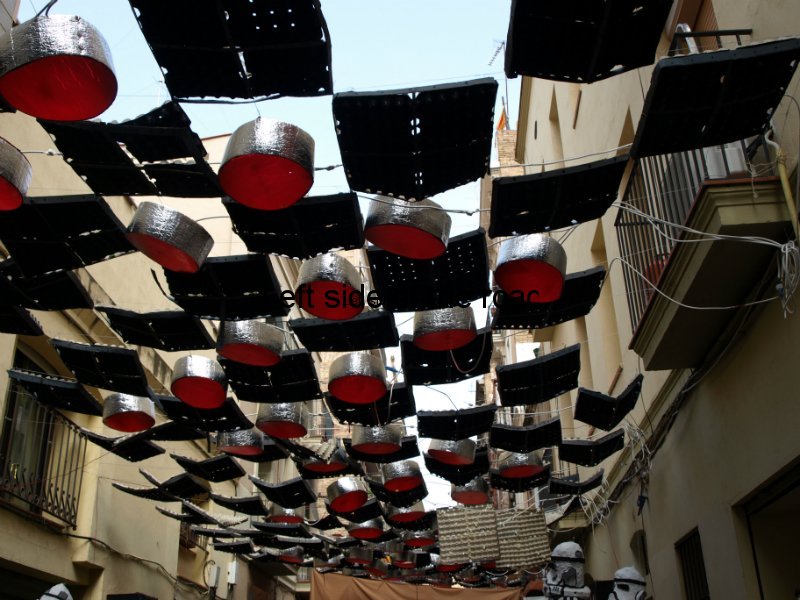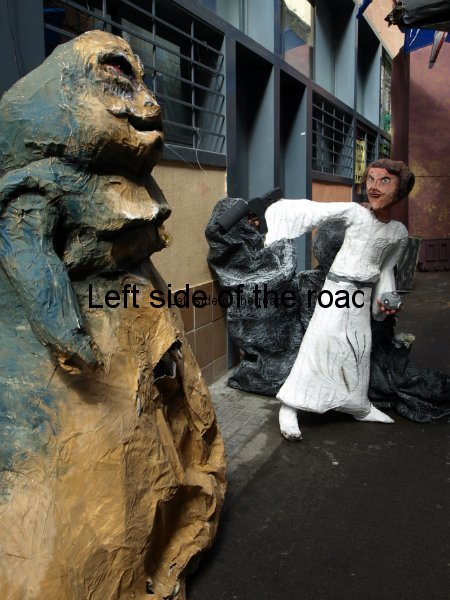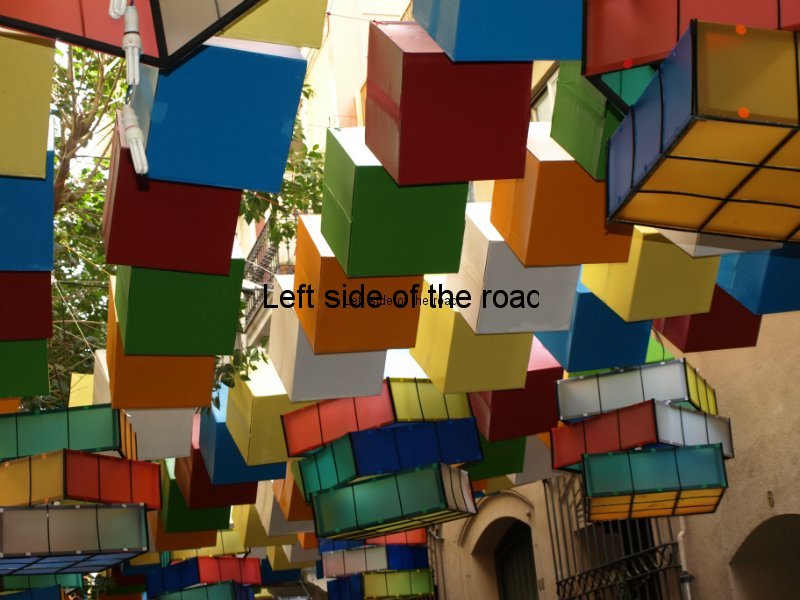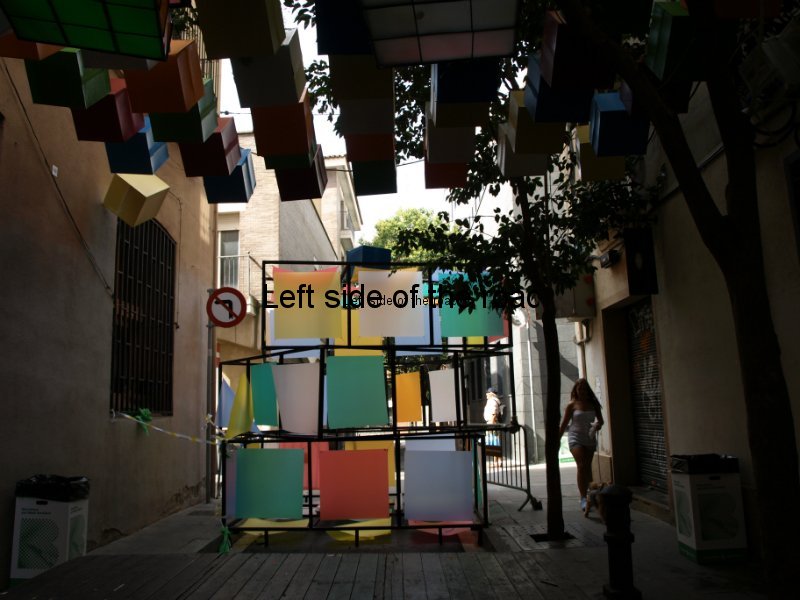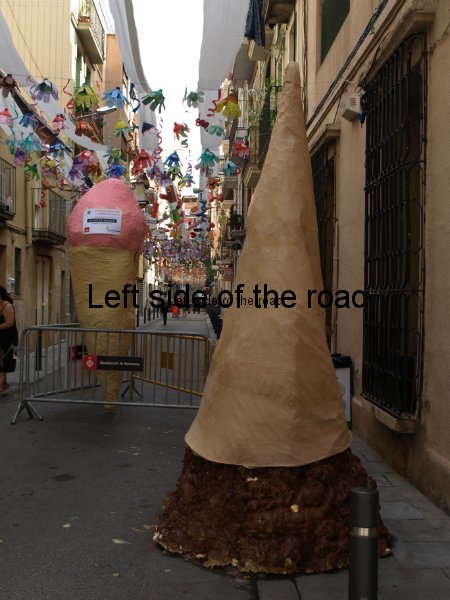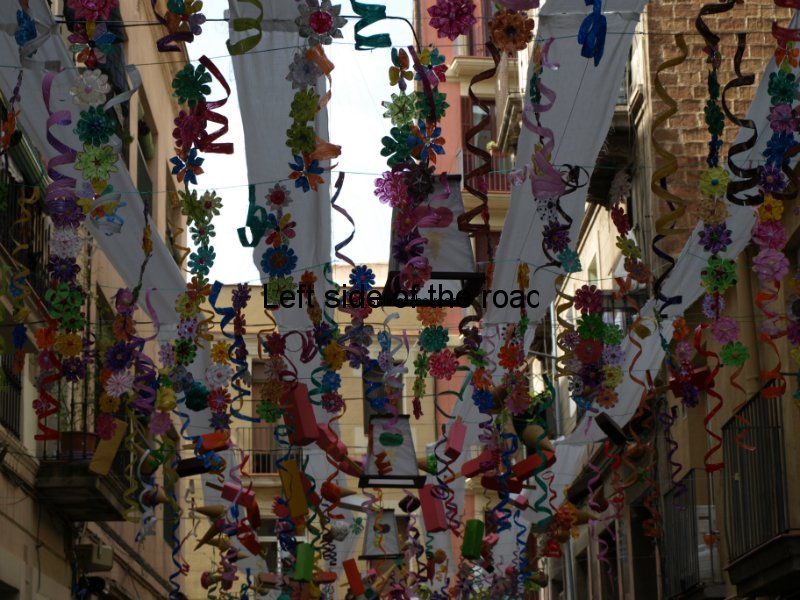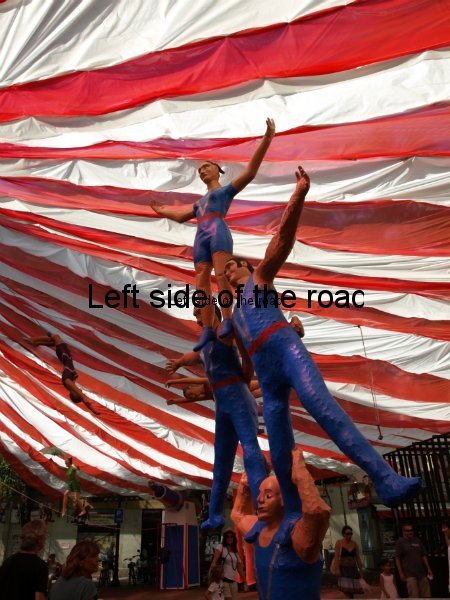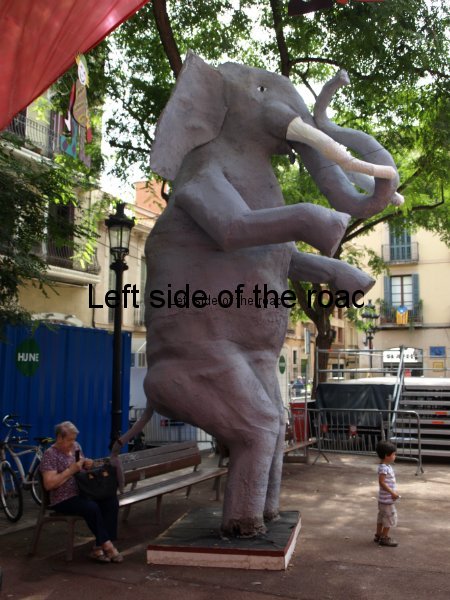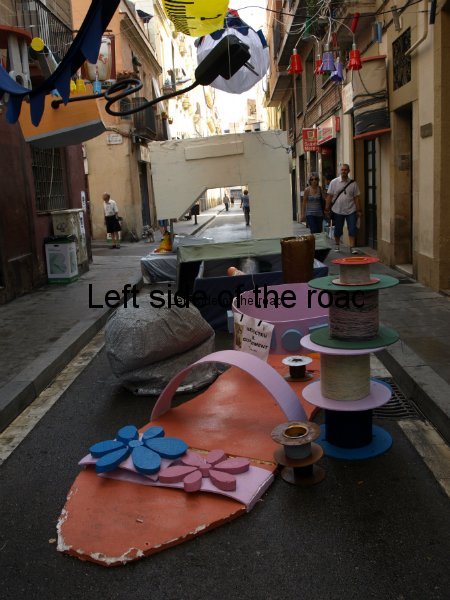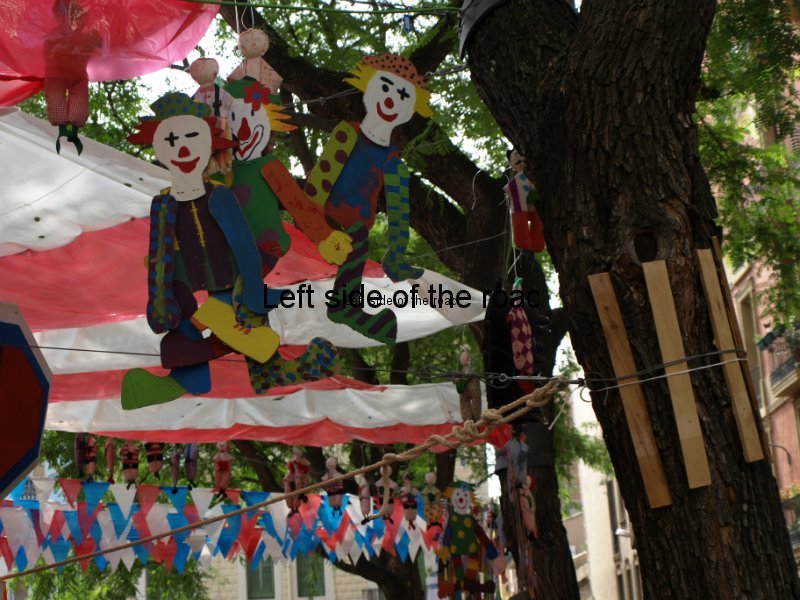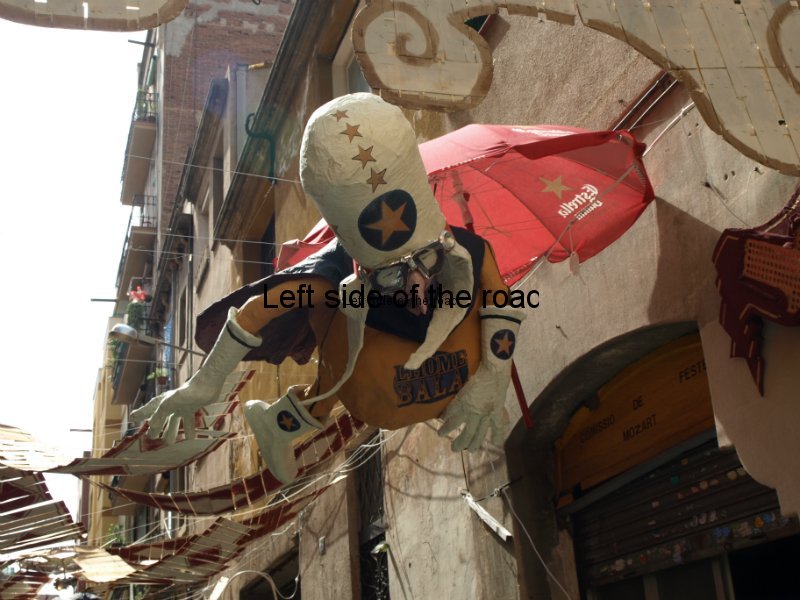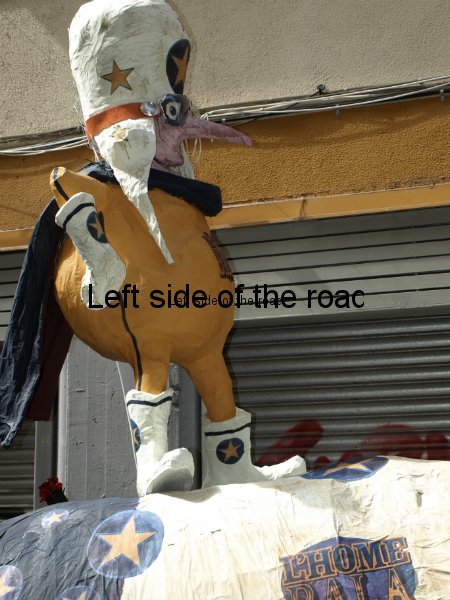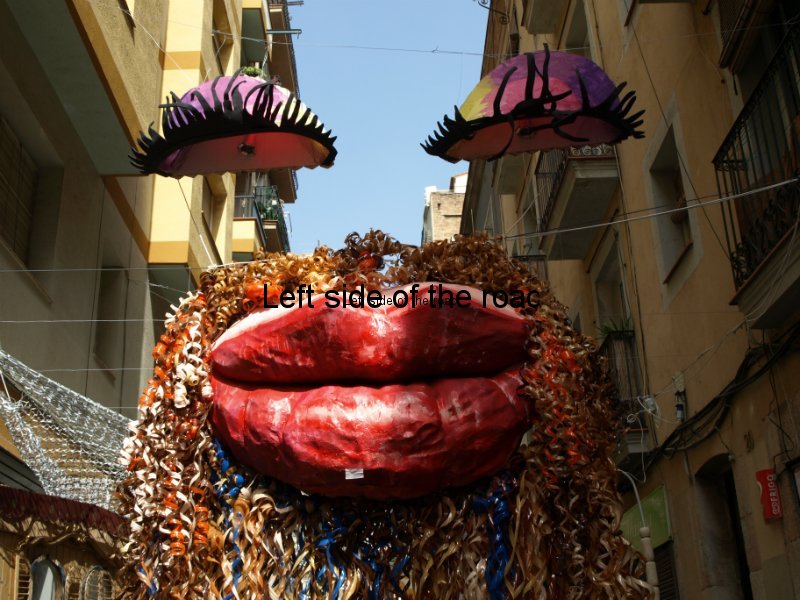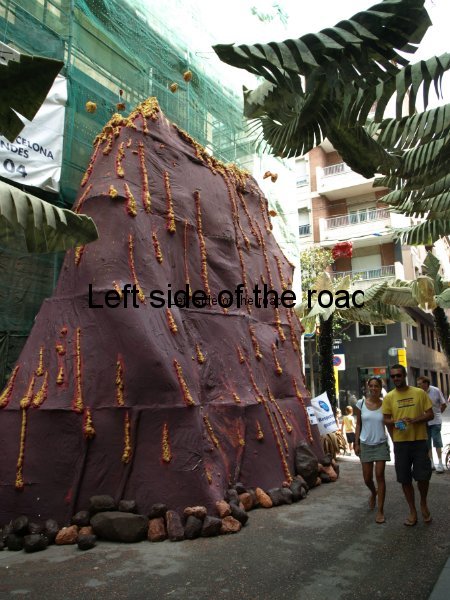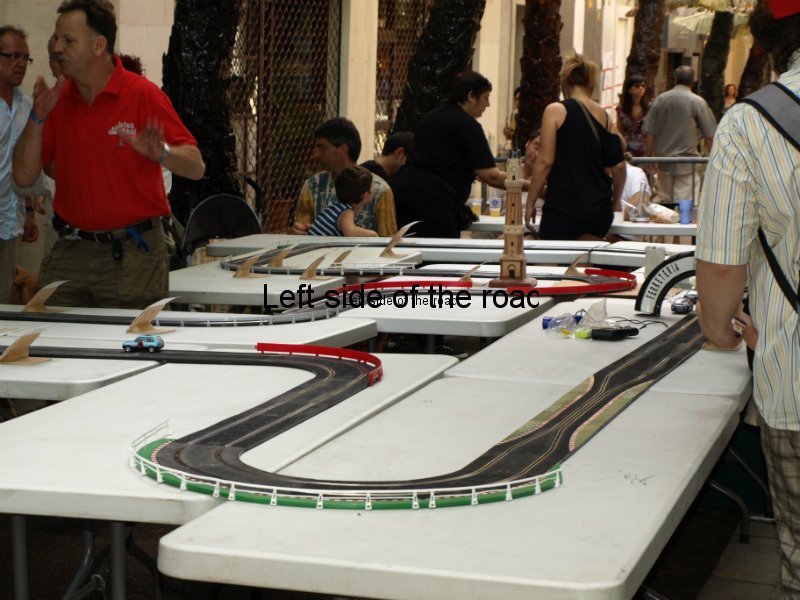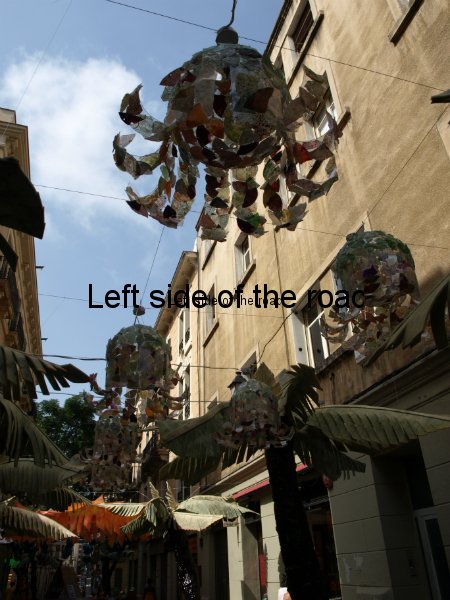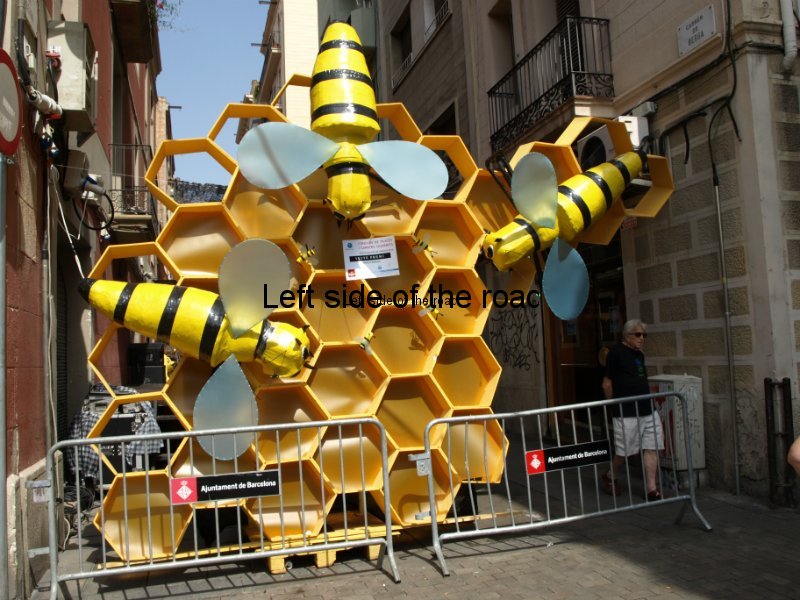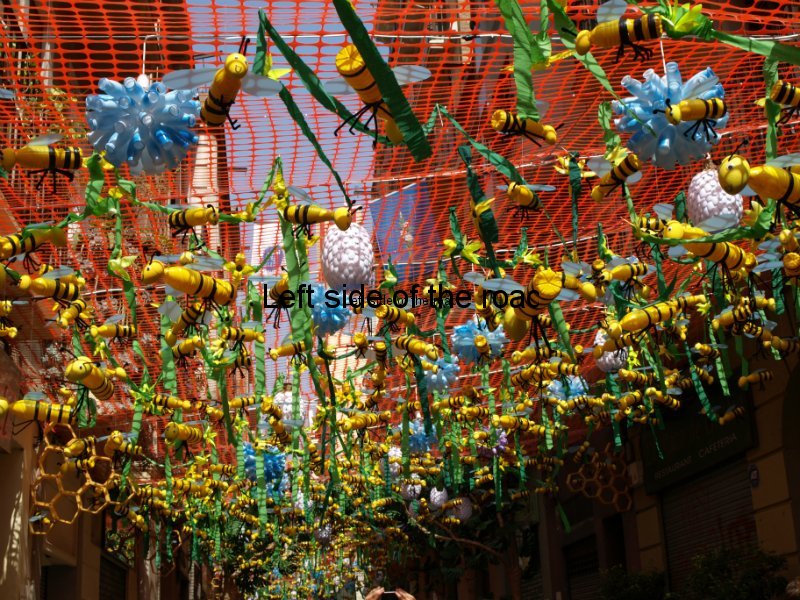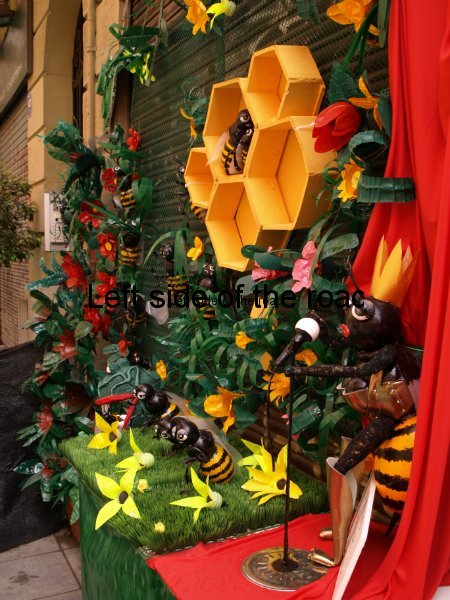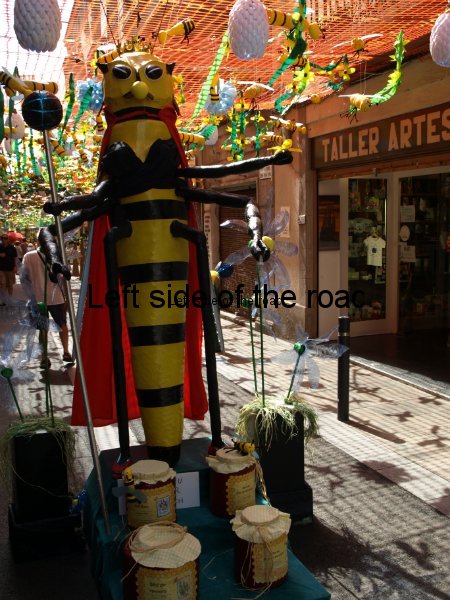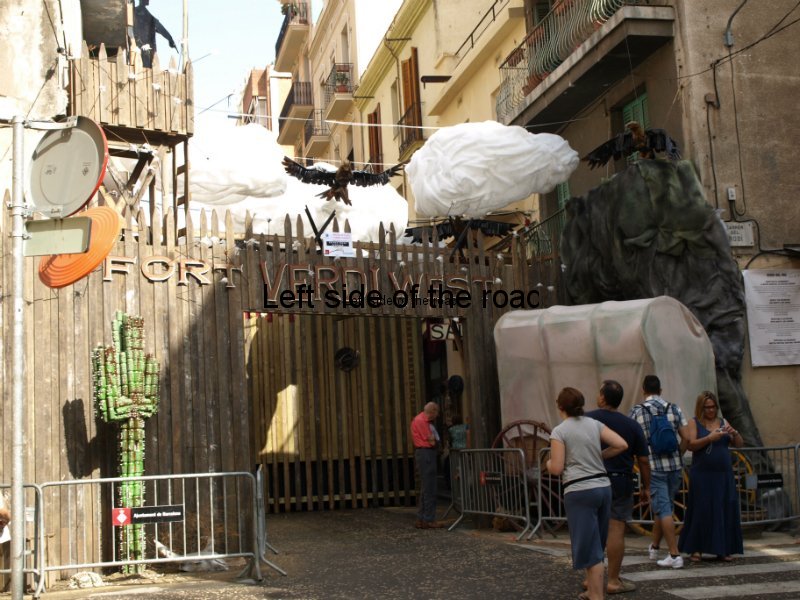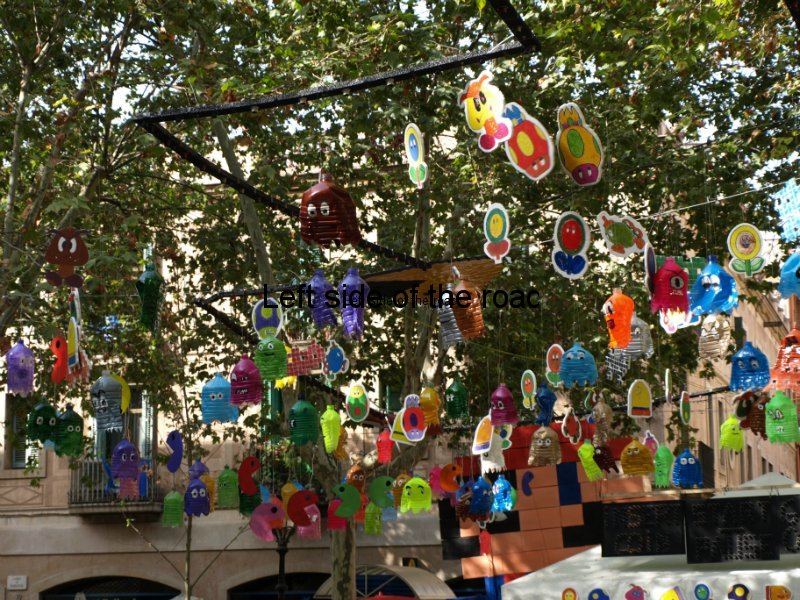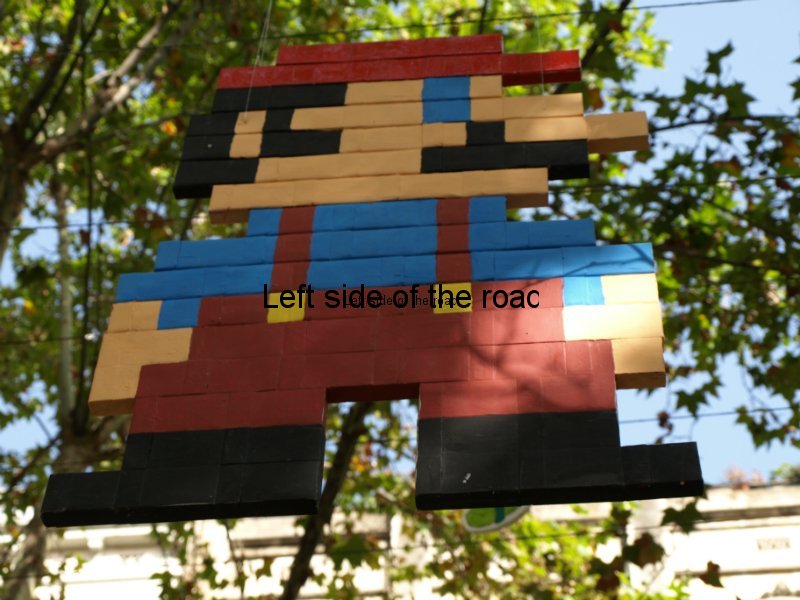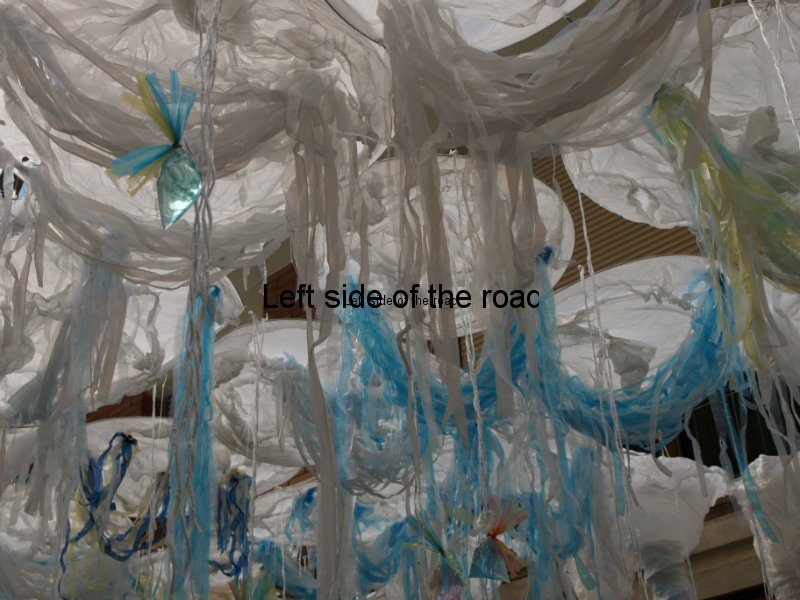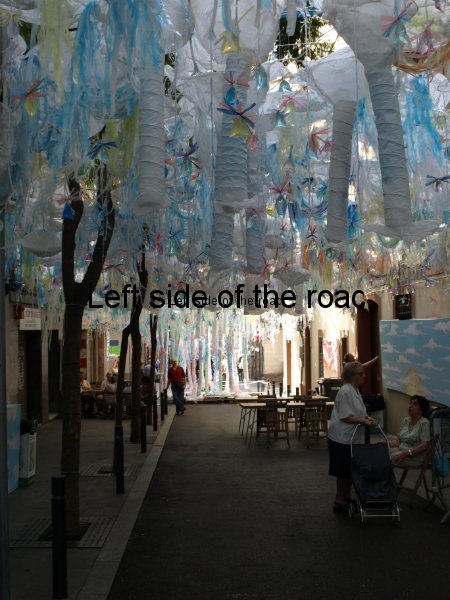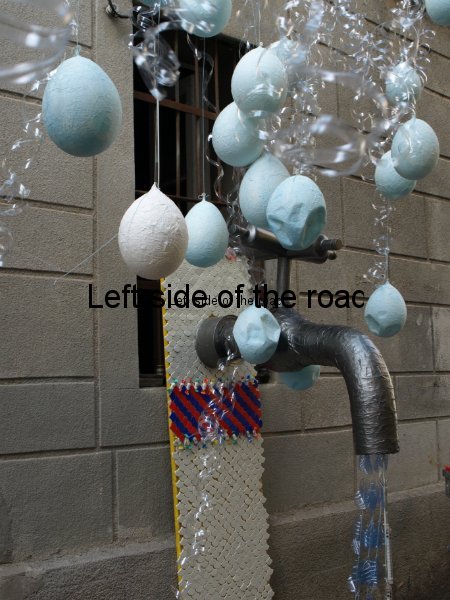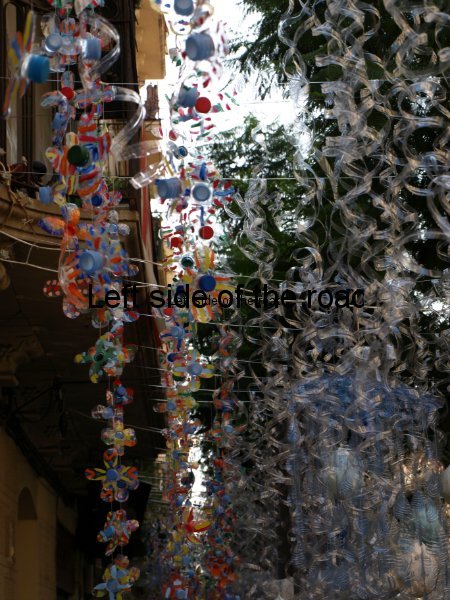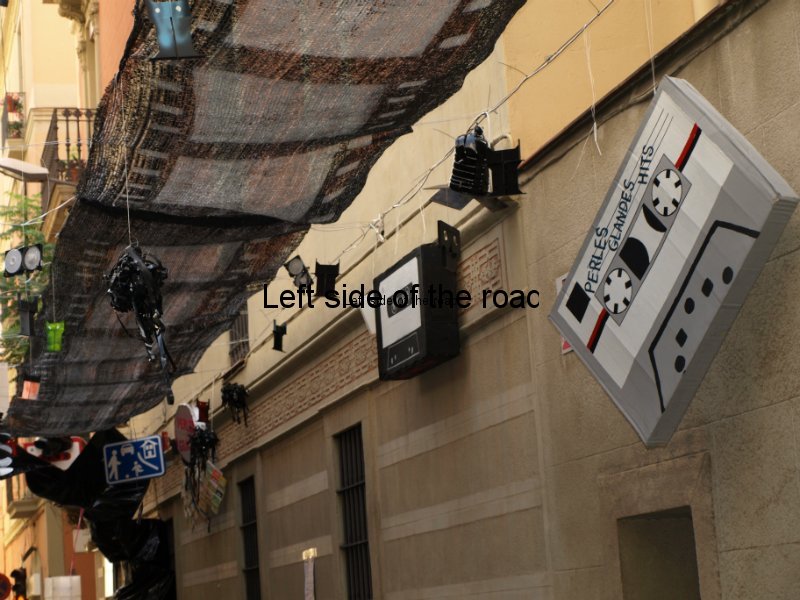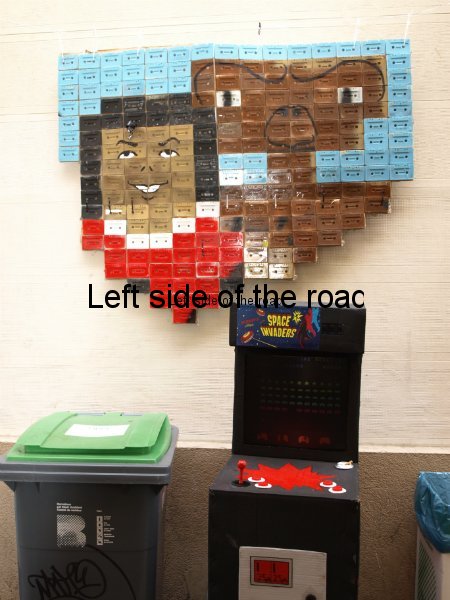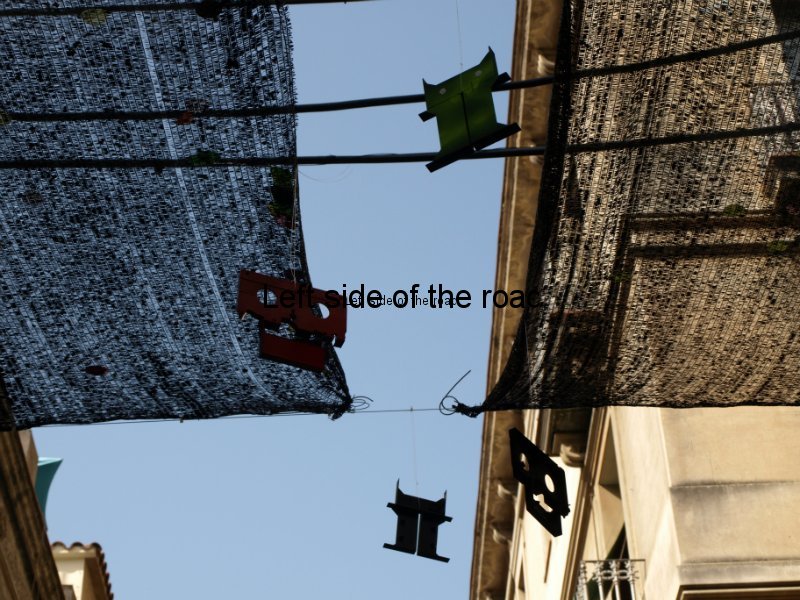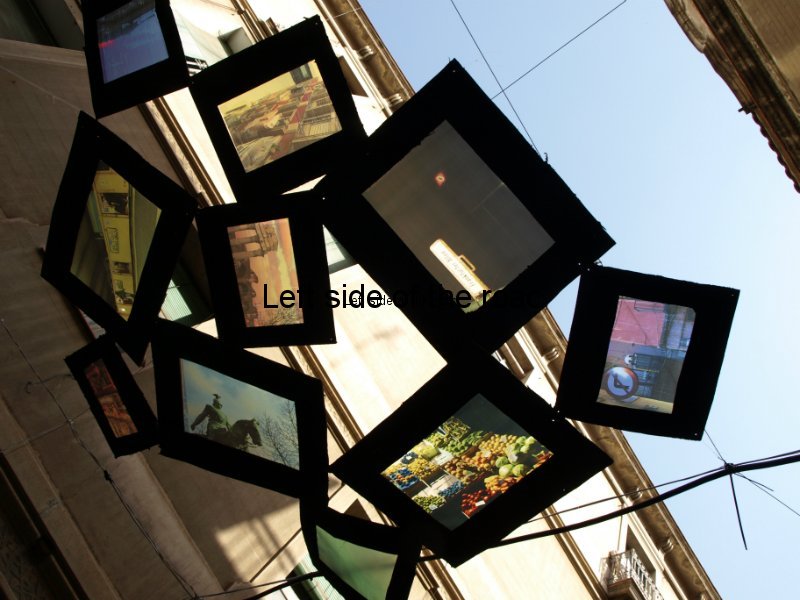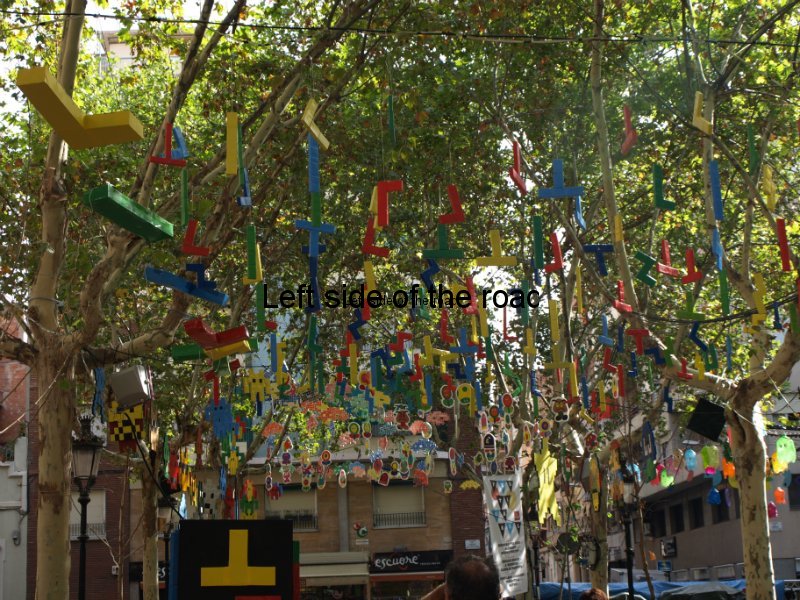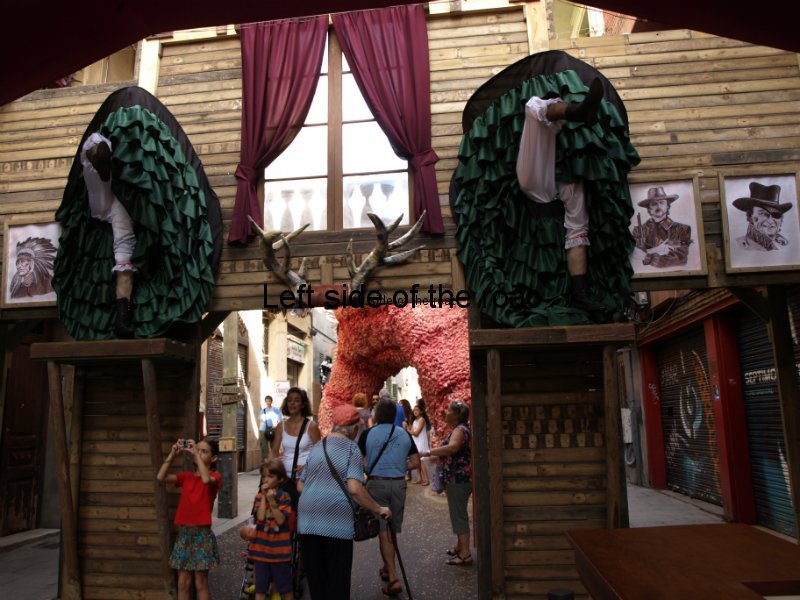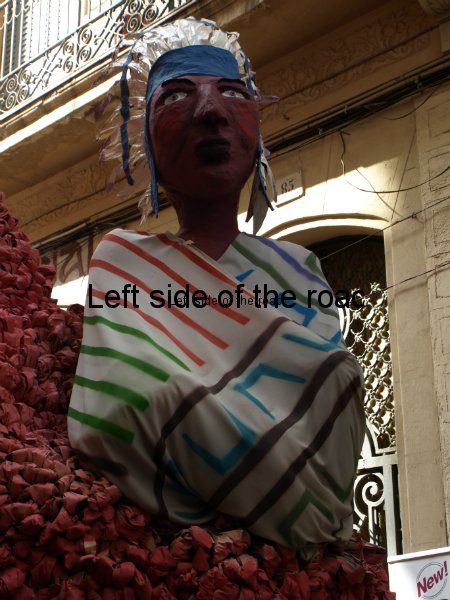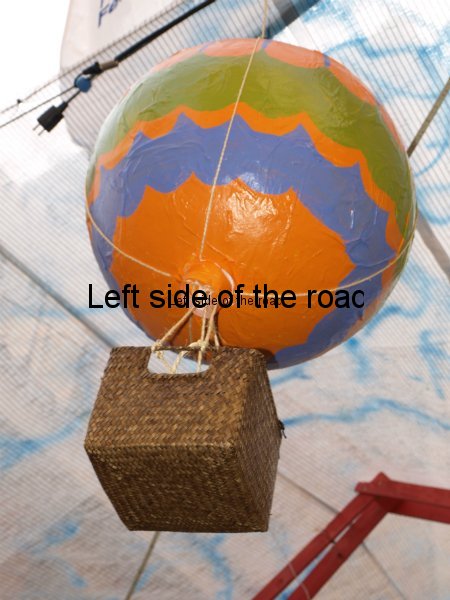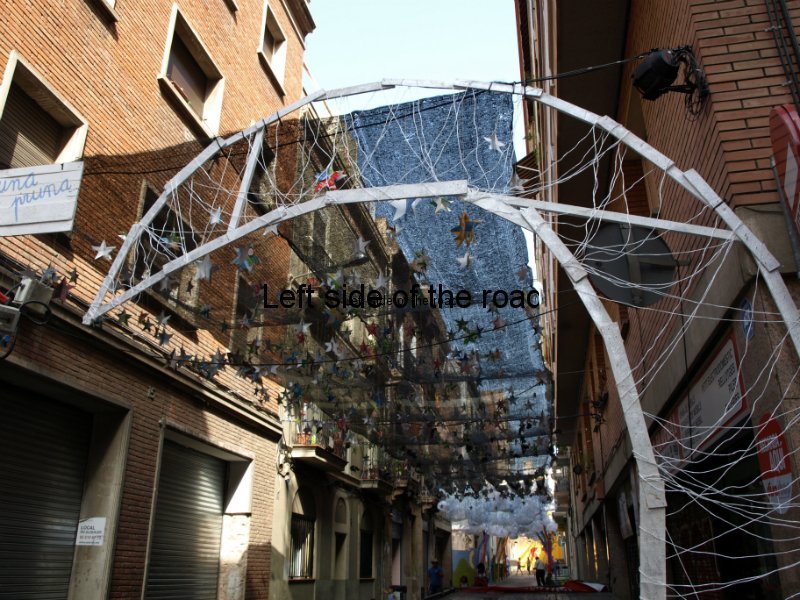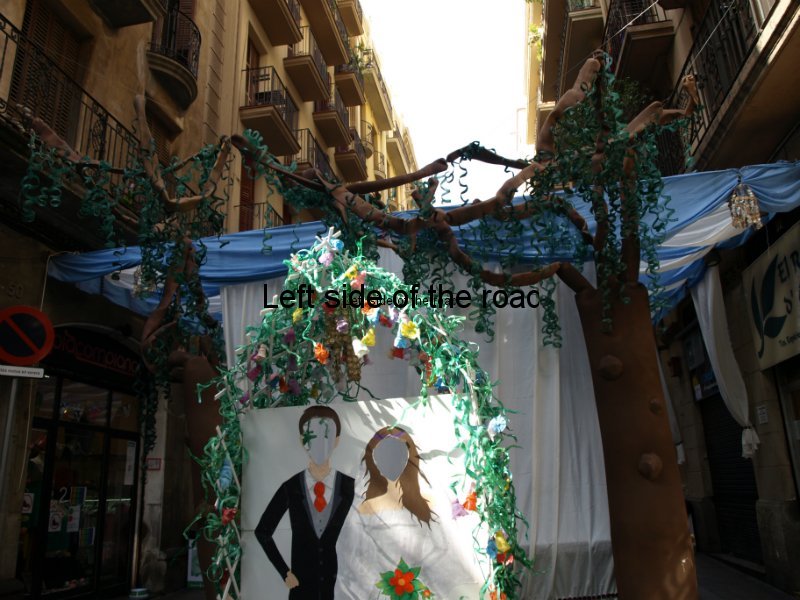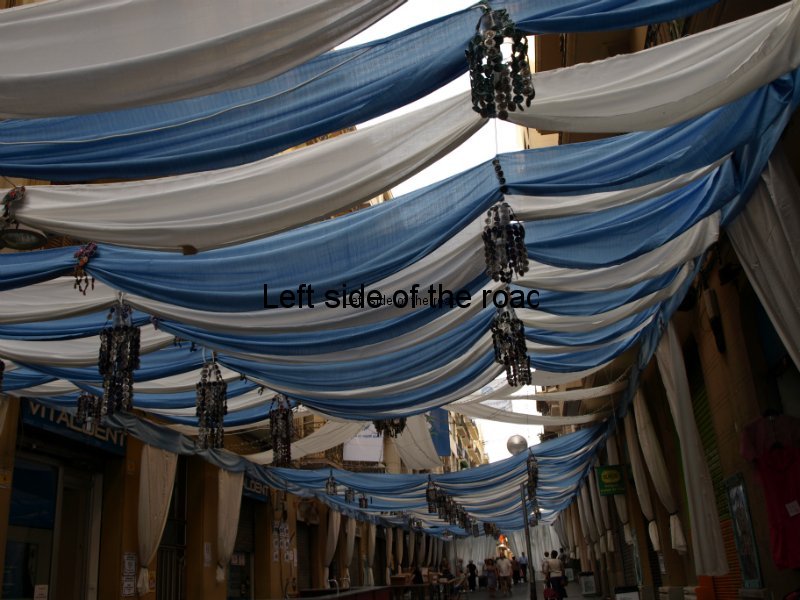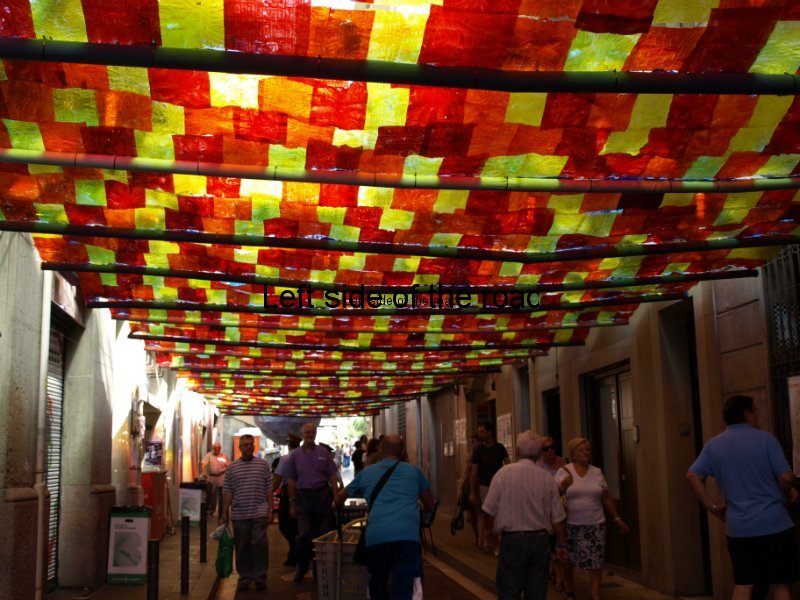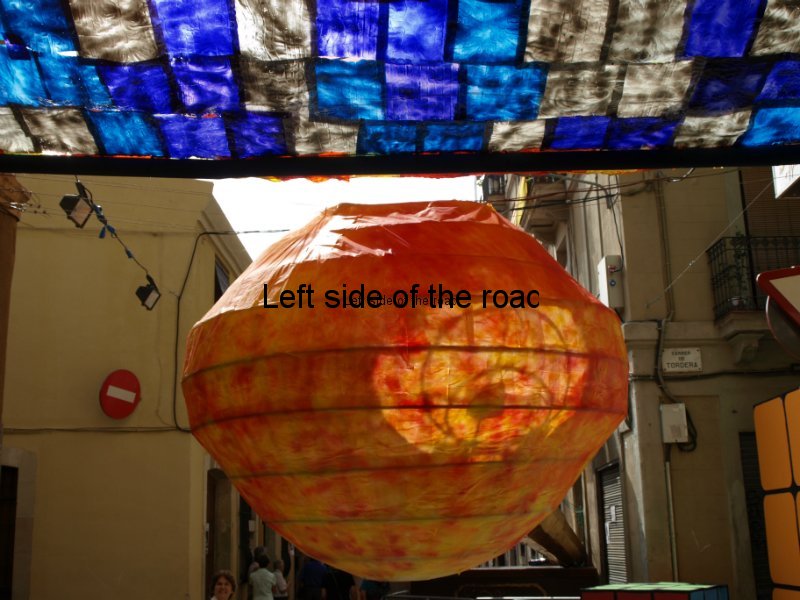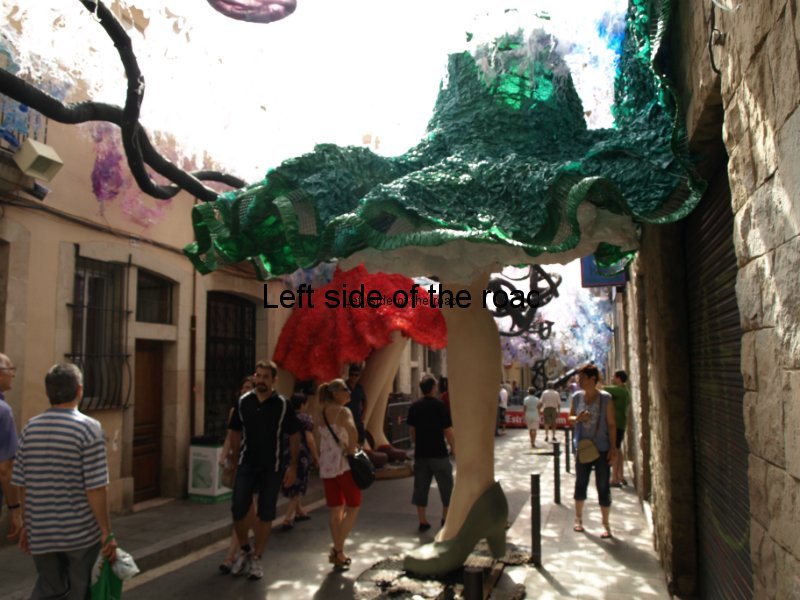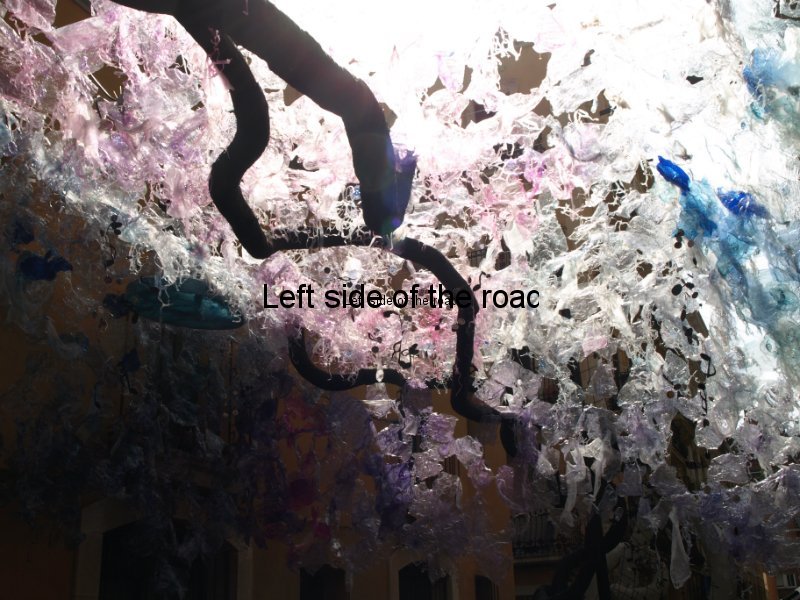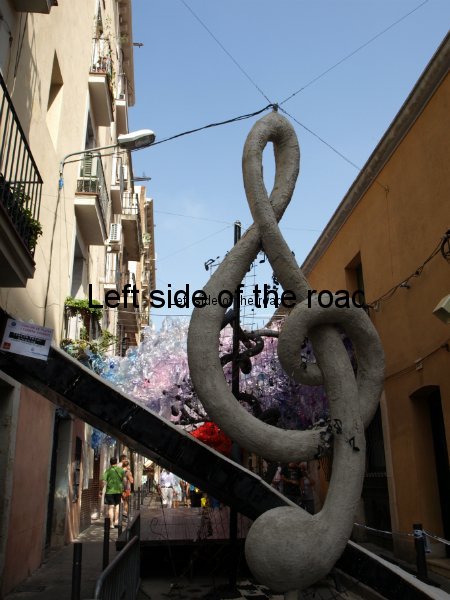
Carrers Guarnits in the Festa Major de Gracia, Barcelona, 2012
Every year the Barcelona district of Gracia organises a street based competition during its Festa Major in August. The carrers guarnits (decorated streets) are a tradition going back just under a hundred years and attracts visitors from all parts of the world.
Yesterday I spent a couple of hours walking around the streets of the Gràcia district of Barcelona, taking more than a hundred pictures of rubbish, literally, (hopefully not rubbish pictures!).
I used to know this area quite well (about 15 or so years ago) but this time I needed a map to get me there and once I found a reference point it all started to fall into place. Although one of the older parts of Barcelona there is a grid design of the old streets, if maybe not as formalised as the 19th century area of the Eixample, so it’s not a difficult place to navigate your way around.
At a time when festivals are being invented all the time in order to attract tourist money it was a pleasure to visit an area where they are continuing a tradition that goes back almost a hundred years. In the 1920s neighbours and community organisations based on a street level began to organise a competition to find out who was able to best decorate their street, in Catalan this is ‘carrers guarnits, at the time of the Festa Major in August.
This socialised structure that had been developed in times of peace was to have a profound effect upon the community in the time of the Civil War where these neighbourhood organisations directed their efforts towards the construction of air raid shelters to protect the people from the fascist bombs of the German Nazi and Italian Fascist air forces.
After the Civil War the Festa Major and the decoration of the streets took on a political dimension with references to the colours of the Falangists (Franco’s fascists) in a satirical manner. At first this increased the number of streets that would be decorated but as the years went by the numbers dropped and by the end of the 1970s the tradition was all but dying out.
As the society got used to the fact that Franco had finally kicked the bucket matters slowly started to change and although still a long way from the heyday of 1942 (which saw 70 streets and 5 squares involved in the competition) there were 17 locations putting themselves forward in 2012.
Before the festival opened, the official date is always the 15th August, different newspapers I read were speculating upon how the economic situation would have an impact upon the display. The argument was that as most of the materials used in the decoration were recycled plastic, paper and cardboard, etc., this should not really have an impact.
To this I would say yes, and no.
The amount of thought, planning and work that goes into these decorations, different every year, is phenomenal. Just like the Rio Carnival the process starts the day after the present festival ends. At times it must be like Blue Peter on speed with children demanding of their mothers the inside cardboard of the toilet roll before it had been used. And a huge amount of material must have been collected and then stored ready to be turned into some quite remarkable objects. However, that ecological idea was not really represented, I think, in the final awarding of honours.
In some of the less complicated ideas there must have been something similar to a production line in reproducing the same objects that hang above the streets for a hundred metres or so. But some of the more complex would have needed trained artists, or at least enthusiastic amateurs, to produce the designs on display.
I visited the festa on the day after the judges had made their decision on the main winners (everyone gets some sort of recognition). However, the gold, silver and bronze winners (after all we are in an Olympic year) were all which had invested more than time and enthusiasm and community involvement in the exercise, they had invested money (and not an insignificant amount).
And this increased investment in the street decorations will inevitably have an effect on the Festa Major in general. Each street has a temporary bar, presumably a money-maker for whatever is planned for the following year. If you win one of the top prizes you will get more visitors and, potentially, more income at those bars. Then you arrive at a situation that exists in football where the most financially better off can maintain their dominance by pure force of money.
As more and more visitors come to see the ‘carrers guarnits’ big companies will be searching for sponsorship opportunities and then any local feeling will gradually disappear. That might be happening already as the Catalan brewer Estrella was represented on every street bar I noticed and would seem to have attained an almost monopoly position.
It would be a shame if commercialisation was able to get its tentacles too deeply into this street festival as it would spell the end of the community spirit that has kept the tradition going for so long.
I enjoyed my time finding my way around the narrow streets and was pleasantly surprised by some of the depth of ideas that were being presented at times, or just the sheer idea of fun. These traditions fail when people take the whole idea TOO seriously.
I was glad to be doing my exploration before noon than after midnight. The smell of piss in the hot Barcelona August sun, the remains of discarded food by the bins (although that would have all been cleaned up by the time the next evening’s festivities began) together with the partly digested pizzas and hamburgers occasionally decorating the pavements indicated the nights could be horrendous.
And it’s not really worth all the hassle for the overpriced delights on offer. After all, its only lager!
I have selected 3 or 4 pictures from each street, to give an idea of what was there this year. See if you can pick the winners and in a few days I will let you know the results and also which ones, and why, I thought should have been on the podium.
Here are a couple of websites which might be of use for anyone thinking of visiting Barcelona at this time of year – but remember it’s hot, hot, hot – or just after more information about the Festa Major.
In the lead up to the Festa Major go to the bario’s official website (in Catalan) here
and the map produced for the event this year (2012)

